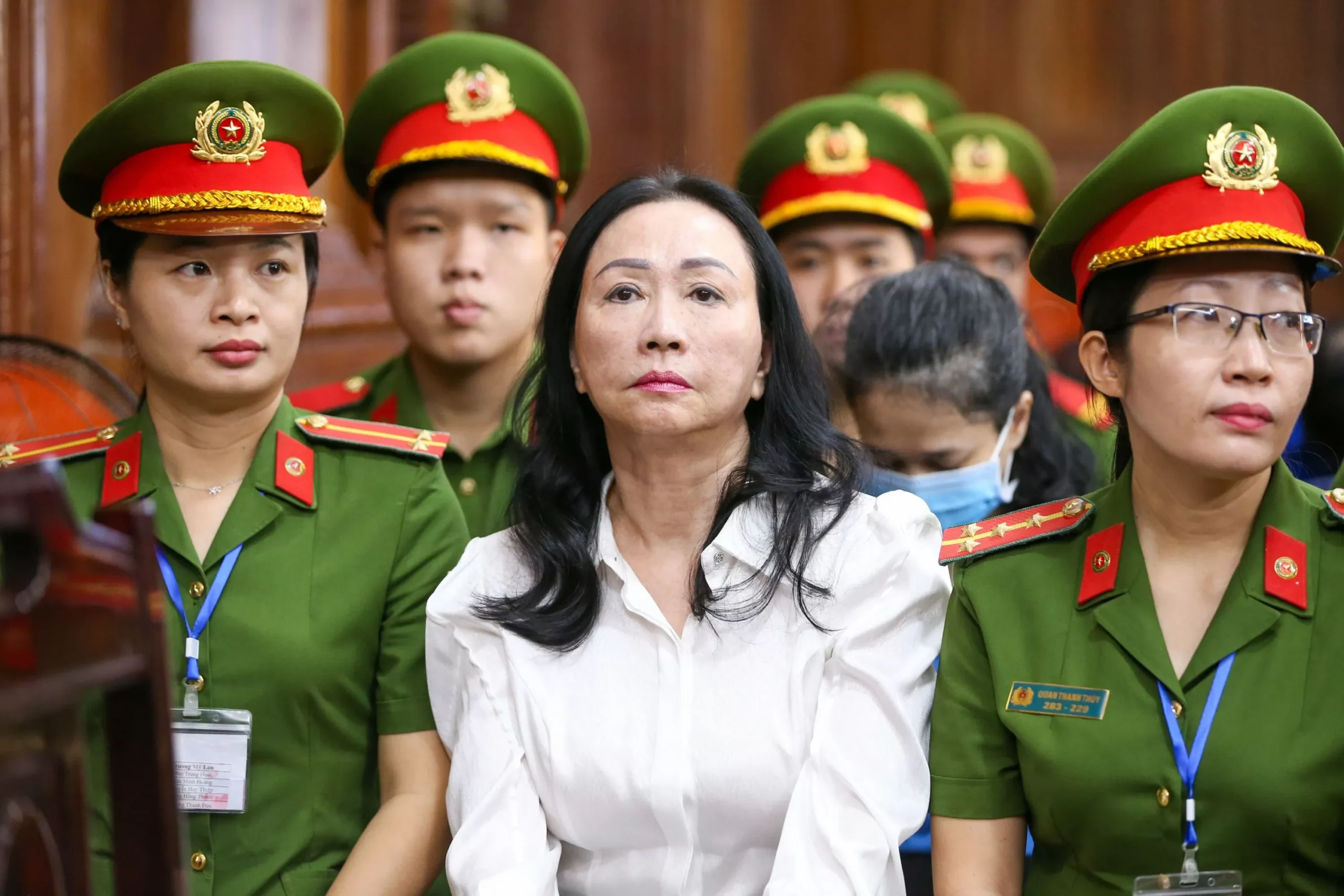A prominent Vietnamese real estate magnate, Truong My Lan, was sentenced to death on Thursday for embezzling an estimated $27 billion. The chair of major developer Van Thinh Phat, Lan was found guilty of using her position to siphon off funds from the company for her personal gain.
The verdict, which was handed down by the Ho Chi Minh City People’s Court, has sent shockwaves through the country’s business community. Lan, who was once hailed as a successful and influential businesswoman, now faces the ultimate punishment for her crimes.
The case against Lan began in 2018 when an investigation was launched into her company’s financial activities. It was discovered that she had been embezzling funds for over a decade, using various methods such as falsifying documents and creating fake projects to cover her tracks.
The court heard that Lan had used the embezzled funds to purchase luxury properties, cars, and other extravagant items. She had also transferred large sums of money to offshore accounts, making it difficult for authorities to trace the money.
The prosecution argued that Lan’s actions had caused significant financial losses to her company and its shareholders. They also highlighted the negative impact her actions had on the country’s economy and reputation.
Despite Lan’s attempts to defend herself, the evidence against her was overwhelming, and the court found her guilty on all charges. In addition to the death sentence, she was also ordered to pay back the embezzled funds and had all her assets seized.
The severity of the punishment has sparked a debate in Vietnam, with some questioning whether the death penalty was too harsh for a white-collar crime. However, others argue that it sends a strong message to those in positions of power that they will be held accountable for their actions.
The case has also shed light on the issue of corruption in Vietnam’s business sector. While the country has made significant progress in recent years in tackling corruption, cases like Lan’s highlight the need for continued efforts to root out this pervasive issue.
In a statement, the government expressed its commitment to fighting corruption and ensuring a fair and transparent business environment. They also urged businesses to adhere to ethical practices and warned that those who engage in corrupt activities will face severe consequences.
The verdict has also been met with mixed reactions from the public. While some have praised the court’s decision, others have expressed sympathy for Lan, citing her previous contributions to the country’s economic growth.
Lan’s case serves as a cautionary tale for those in positions of power and influence. It highlights the importance of upholding ethical standards and the consequences of succumbing to greed and corruption.
The Vietnamese government has made it clear that they will not tolerate corruption in any form and will continue to take strong action against those who engage in such activities. This sends a positive message to both the business community and the general public that the rule of law will be upheld and justice will be served.
As the country continues to develop and attract foreign investment, it is crucial to maintain a clean and transparent business environment. The government’s swift and decisive action in this case demonstrates their commitment to achieving this goal.
In conclusion, the sentencing of Truong My Lan to death for embezzling $27 billion is a significant step towards eradicating corruption in Vietnam. It serves as a reminder that no one is above the law and that those who engage in corrupt activities will face severe consequences. The government’s commitment to fighting corruption and promoting ethical business practices is commendable and will undoubtedly contribute to the country’s continued growth and success.





![Complete BritRail Pass Guide [Types, How to Use It, Pros + Cons]](https://inside-news.uk/wp-content/uploads/2025/06/00221EB4-BCA2-4DBB-6CD4-83DBC37D71FA-120x86.webp)
















